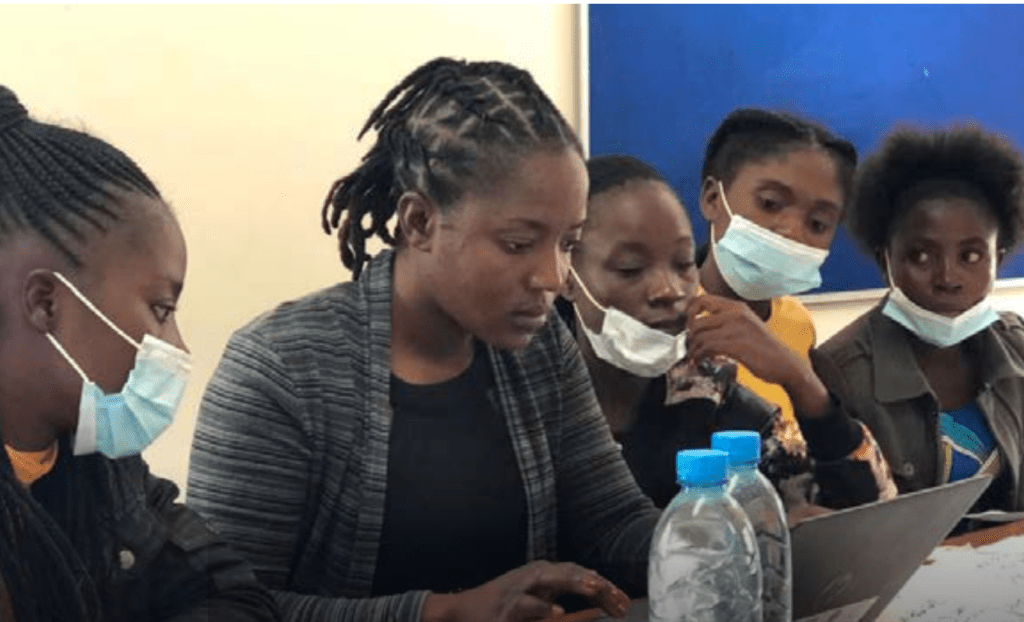It won’t be girls and young women determining the future of the planet during this week’s climate talks at COP26 in Glasgow, but girls and women will have the most to lose should world leaders fail to act as quickly and ambitiously as required.
We’re already seeing how climate-related disasters place girls and women at greater risk of forced marriage, sexual exploitation and violence, and of having their education disrupted or even ended.
As the Malala Fund finds, there are now four million girls across low and lower-middle-income countries who will not complete their education in 2021 as a result of climate-related events. On current trends, by 2025 12.5 million girls will face such consequences.
Indeed, young activists are not only urging policymakers to take more ambitious action on climate change, but to also immediately address adaptive measures, such as moving schools closer to communities that are prone to climate disasters, in order to better safeguard girls’ education.
In Zambia and Zimbabwe, a new report released today shares how families are already experiencing climate shocks in rural communities, with those reliant on agriculture dealing with food insecurities thanks to flooding and shifting rainfall patterns. The report finds that these families are more like to marry girls off to older men in order to cope with the stress, or force girls into sexual exploitation to help alleviate the economic burden.
The report by Plan International Australia, co-authored by 16 women aged 16 to 28 and based in these rural communities, also finds that when parents are unable to afford school fees for children, they are prioritizing sending boys to school. Meanwhile, an increase in major weather events adds further challenges for girls to get to school, such as when roads and bridges are destroyed as a result of flooding.
The interviews the report authors did also saw girls and young women saying that extreme weather is putting them at greater risk of sexual violence. During a drought, for example, these girls need to travel further distances from their homes to collect water. And during floods, they need to shelter in unsafe places.
Describing what happens when the rain destroys houses, one survey participant from Zambia said: “Our parents seek shelter on our behalf in the neighborhood. While there, we are taken advantage of by boys and men living in that house where we will be sheltered.”
Off the back of this report, Plan International Australia is urging the tens of thousands of world leaders, climate activists, diplomats and researchers gathering in Scotland for the Summit to hear and priortise the voices of young people, particularly girls and young women.
Plan’s Australia CEO Susanne Legena is urging the Morrison Government to raise its ambitions on reducing reductions and to double its climate finance commitments to at least $3 billion over five years, to help protect at-risk countries and enable them to adapt to climate change impacts.
“This is the most critical issue of our times,” she says. “Climate change is an injustice to women and girls. We must keep 1.5 degrees alive at COP this year.”
Plan’s climate change advisor described climate change as one of the “greatest global intergeneration gender and social injustices of our time.”
“Discriminatory social and gender norms mean that girls and women, in all their diversity, are too often the hardest hit by climate change and have the fewest resources to cope. Failing to keep global warming below 1.5C will only see more climate impacts and roll back progress towards equality and justice.
The 16 young women researchers have developed a series of recommendations for policymakers, which include building schools closer to communities prone to floods, changing the school calendar to better suit the shifting seasons, establishing satellite schools to support girls in continuing their studies, and ensuring that the school curriculum covers contextual climate change education that recognises local knowledge on climate impacts and adaptation – as well as on how communities can develop mitigation strategies.
Photo above: Young women researchers from Chisamba and Cheme in Zambia, at the analysis workshop on the report’s findings.


